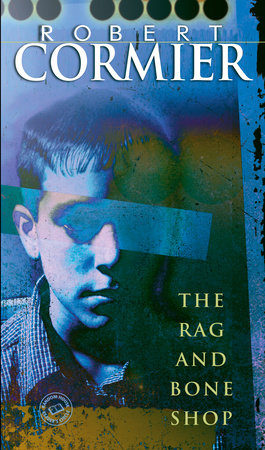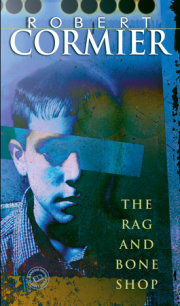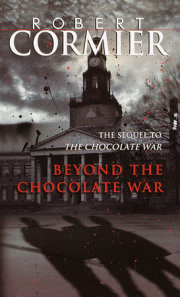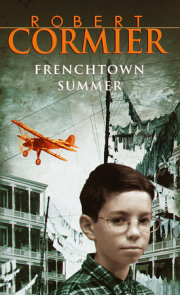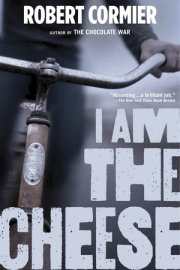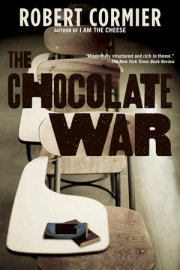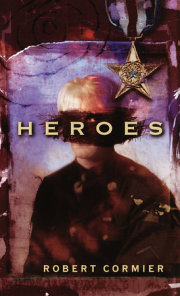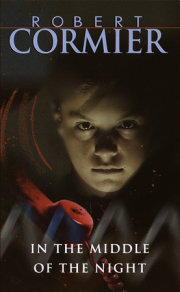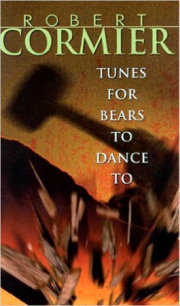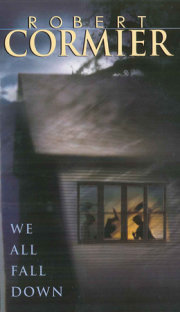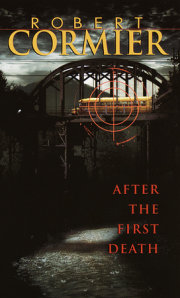Feeling better?"
"I guess so. My headache's gone. Is there a connection?"
"Maybe. They say confession's good for the soul. But I don't know if it eliminates headaches."
"Am I supposed to say I'm sorry now?"
"The fact that you confessed indicates a degree of sorrow."
"Is that enough?"
"That's up to you, Carl. What you did can't be erased, of course."
"I know. They're dead. Gone. Can't bring them back. But--can the sin be erased?"
"I can't tell you that. I'm not a priest."
"But I confessed to you."
"Yes, but I can't give you absolution."
Pause.
"Are the police coming?"
"They're waiting outside."
Trent shut off the tape player and leaned back in the chair, kneaded the flesh above his eyebrows. In the silence of the office, he still heard Carl Seaton's voice, all cunning gone, penitent, full of regret. Trent had sat across from him for four hours, under the harsh light of a 100-watt ceiling bulb, in the small cluttered office. The relentless questions and answers, the evasions and rationalizations, the eventual admission (not the same as a confession), and, finally, the confession itself.
The Trent magic touch at work, as a newspaper headline had once proclaimed. But Trent felt no particular magic now, no thrill of accomplishment. Too many confessions? Like Carl Seaton's? Having induced Carl to confess (that old Trent magic has you in its spell), Trent had had to listen to the recitation of his cold-blooded, deliberate murder of three people. The victims were a thirty-five-year-old woman, her thirty-seven-year-old husband and their ten-year-old son, although Carl hadn't known their ages at the time.
Six months ago, in the milky whiteness of a winter dawn, Carl Seaton had broken into the modest two-story home of Aaron and Muriel Stone to steal the small gun collection in the cellar. He admitted that he knew nothing about guns except the pleasure of holding them in his hands and the sense of power they gave him. Carl Seaton broke a cellar window, not worried about the noise of his intrusion, having learned that the family was away on vacation and that there was no alarm system.
He was disappointed to find that there were only three small guns in the so-called collection. He was surprised to find that the guns were loaded. He then decided to search the house. Thought he might find something of value, although he knew nothing about fencing stolen goods. Heard a noise from the second floor. Padded toward the stairs, his sneakers noiseless in the carpeted hallway. Upstairs, he entered a bedroom and was surprised to see a man and woman asleep in the bed. The woman slightly curled up, the bedclothes thrown off. Beautiful eyelashes, thick and curved. The husband flat on his back, mouth open, snoring gently. Carl became conscious of the gun in his hand, felt suddenly the power of his position. What it must feel like to be--God. Looking down at them, so helpless and defenseless, it occurred to him that he could do anything he wanted with them. They were at his mercy. He wondered what the woman would look like without her blue nightgown on. He had never seen an actual naked woman, only in magazines, movies and videos. But it was too much of a bother now to think about that. He didn't want to spoil this nice feeling, just standing there, knowing he was in charge. He raised the gun and shot them. First, the man. The bullet exploded through the thin blanket, small shreds of green cloth filling the air like rain, the noise of the shot not as loud as he'd imagined it would be. As the woman leaped awake, her eyes flying open, he shot her in the mouth, marveled at the gush of blood and the way her eyes became fixed and frozen in shock. A mighty sneeze shook his body, the smell of gunpowder heavy in the air.
He wondered: Was there anybody else in the house who might have heard the shots? He went into the hallway, opened a door at the far end, saw a boy sleeping in a bed shaped almost like a boat, hair in neat bangs on his forehead. The boy's eyelids fluttered. Carl wondered whether he should shoot him or not. Then decided that the boy would be better off if he did. Terrible thing to wake up and find your mother and father dead. Murdered. Carl shot the boy as an act of kindness, nodding, feeling good about it, generous.
Carl Seaton had confessed his acts of murder almost eagerly, glad to provide the details that would lead to his own doom, his voice buoyant with relief. Which was often the case with those who finally acknowledged their acts.
Trent felt only contempt for Carl Seaton, although he had simulated sympathy and compassion during the interrogation. Acting was only another facet of interrogating subjects. If he felt any compassion at the moment, it was for Carl Seaton's parents. Carl was seventeen years old.
Trent's jaw began to ache. He never got headaches, instead this streak of pain running along his jaw. Ridiculous, but there it was. It usually happened after an interrogation, like a punishment he had to endure. Why a punishment? I'm only doing my job. That's the trouble, Lottie had claimed.
And now he admitted why Carl Seaton's confession, another notch in his belt, had failed to provide the usual surge of triumph. There was no Lottie in his life now to tell about it, even though he knew she had stopped listening at the end. Still, Lottie had always been there for him, even if he hadn't always been there for her.
The pain in his jaw increased and he tried yawning to provide some relief. He resisted taking the painkillers in his desk drawer. Maybe I deserve some pain, he thought, thinking of Lottie.
He put away the cassette and tape player, cleaned up his desk, checked tomorrow's appointments. Time to go home. Home to the empty house, where Lottie was only a forlorn ghost. But there was no place else to go.
PART II
lasses in Monument ended on the last Friday of June for the summer vacation but Jason Dorrant regarded today, Monday, as the first real day of vacation. The weekend just past didn't count because he never went to school on weekends anyway.
He had intended to sleep late this morning but his eyes flew open as if the alarm clock had rung. The digital clock said 6:32 and Jason smiled, stretching luxuriously, thinking of the lazy summer days that lay ahead. Not exactly lazy--summer day camp started next week--but no more classes and no more homework for the next two months.
Actually, he'd had a pretty good year at Monument Middle School. He'd managed, for the very first time, to sneak onto the honor roll for the second marking period, although he figured that was due to luck rather than brainpower. He was glad that the seventh grade was behind him and he hoped eighth grade would be easier. He had a feeling that it wouldn't be, though. He always had to work hard for his grades. Other kids seemed to fly through the terms with good marks on tests, answering questions in class, their hands waving eagerly at the teacher, but Jason was shy about offering answers even when he knew them. He didn't like to be the center of attention. He'd feel the heat of his blood beating in his cheeks and his heart racing dangerously.
Anyway, school was not on his schedule for the next two months. He sighed, stretched his legs again and threw off the thin blanket. He knew that summer camp would be no picnic, either, but at least there wouldn't be any classrooms or written tests and he could make a fresh start with new kids. Leave the old kids behind, especially those who made his life miserable. Not that they were cruel or mean or made him the object of pranks or tortured him or anything like that. Mostly, they ignored him. He was rarely asked to join in their games or activities. He usually sat alone in the cafeteria and felt alone even when others were at the table. The other students seldom talked to him or asked him his opinion about anything. When they did encounter him in situations where he couldn't be avoided, they addressed him in an absentminded way, didn't seem interested in what he had to say, quickly turned their attention elsewhere.
He liked the company of younger kids. They paid attention to him, listened to him, laughed at his jokes. He got along great with his sister, Emma, who was eight and liked to follow him around. At recess, he'd sometimes wander over to the other side of the schoolyard and watch the second and third graders playing their games. He got a kick out of them, the way they acted so serious, like miniature grown-ups. He'd push them on their swings. He'd seek out Emma, who was always glad to see him. He knew that Emma was smarter than he was. She read two or three books a week, while Jason had to struggle to get through a book, like Stephen King's new one, even though he was enjoying it. Emma was a great writer, too. She'd won an essay contest last year. The essay, which she titled "Rites and Wrongs," was about the celebrations of holidays and how they had changed through the years. She explained the title to him, how rites was a play on the word rights, what she called a pun. What he liked about Emma was that she didn't explain things in a way that made him feel stupid but as if she was sharing knowledge with him and making him feel worthy of that sharing.
He got out of bed, heard the sound of the shower from the bathroom next to his bedroom. His mother was an early riser and could not function in the morning until, one, she drank a cup of black coffee, and, two, she had a shower. Emma, too, was an early riser but she would read in bed for an hour or two. His dad was away on a business trip to Lincoln, Nebraska. He would be home in three days. His father was a fanatic about football, had a season ticket to the New England Patriots games. Jason went with him sometimes but could not get excited about twenty-two men knocking each other around on a football field. He liked to be with his father, though, and pretended that he liked the game. He always had to act real sad and upset when the Patriots lost. His father went into what his mother called a blue funk when the Patriots were defeated.
Sitting on the edge of the bed, Jason contemplated the day that lay ahead. He would accompany his mother to the Y as her guest in the morning and do some swimming in the free swim period while she went through her exercises on the machines. Home for lunch and he'd be free for the afternoon while his mother did her volunteer work at Monument Hospital. Emma would be spending the day at Kim Cambridge's house. Kim's family had a swimming pool. Emma had invited Jason to tag along but he was looking forward to a free afternoon when he could do anything he pleased. Goof around, maybe take a bike ride, watch television or finish the Stephen King book. Brad Bartlett had invited him for a dip into his swimming pool in the afternoon but Jason knew that he had been invited simply because their mothers served on a lot of committees together. Brad liked to play practical jokes and you could never trust what he was going to do. Jason liked his kid sister, Alicia. She was a whiz at jigsaw puzzles and he liked to watch the picture emerge as she set the pieces in place. So maybe he might drop in to see her later today, but wouldn't bring his swimming trunks.
Anyway, the day loomed ahead, free, no classes, no demands, not even any household chores that he knew about, and he lay there feasting on the thought of the long summer days ahead.
The body of seven-year-old Alicia Bartlett was found between the trunks of two overlapping maple trees in dense woods only five hundred yards from her home. She was covered with an accumulation of leaves, branches and debris, which was one of the reasons her body had not been discovered during the first search of the area.
Whoever killed her had apparently laid her down with tenderness, folded her arms across her chest, pulled her dress down primly to her knees and carefully arranged her long black hair to frame her face. But the killer could not erase the expression frozen in her eyes--horror and surprise--and had not bothered to close those stricken eyes.
Her body was discovered at dusk during the second search of the area by a volunteer who spotted a small white sandal sticking out of a pile of debris. Authorities reasoned that an animal had perhaps disturbed her covering, exposing the sandal sometime between the first and second searches.
The medical examiner listed the preliminary cause of death as head trauma from an irregularly shaped blunt instrument. Alicia had been struck in the temple with a single blow and death was probably instantaneous. The weapon was not found. She had not been raped or sexually molested. There was a minimum of blood in the area of the wound. The child had not resisted her attacker, since there was no defensive evidence such as blood or bits of flesh under the fingernails. Time of death was placed at approximately 5 p.m., less than an hour after her disappearance.
Alicia had last been seen on the patio of her home by twelve-year-old Jason Dorrant, who lived in her neighborhood, about four o'clock on the afternoon of June twenty-ninth. She had either wandered off or been lured away a few minutes before her mother arrived home from a shopping trip at 4:10 p.m.
Alicia Bartlett was small for her age, fragile, intelligent, friendly and outgoing, although her mother said she was timid with strangers and certainly would not have gone off with someone she did not know. She was an utterly feminine child, which was the reason she was wearing a dress on one of the hottest days of early summer, refusing to put on the shorts and brief halter her mother had suggested. The dress, a green sleeveless one, was probably just as cool as any other outfit, her mother had decided.
Alicia lived with her parents, Norman and Laura Bartlett, and her thirteen-year-old brother, Brad, in a section of Monument, Massachusetts, known as Cobb's Creek, named for the brook that meandered along the edges of the neighborhood. Searchers had at first concentrated on the brook, even though its depth was seldom more than a foot in most places and it would be dried up in spots by midsummer. Still, it was feared that Alicia might have stumbled and fallen into the stream, struck her head on a rock, lost consciousness and drowned. The focus on the brook was another reason that her body had been overlooked in the early stages of the search.
Copyright © 2001 by Robert Cormier. All rights reserved. No part of this excerpt may be reproduced or reprinted without permission in writing from the publisher.

